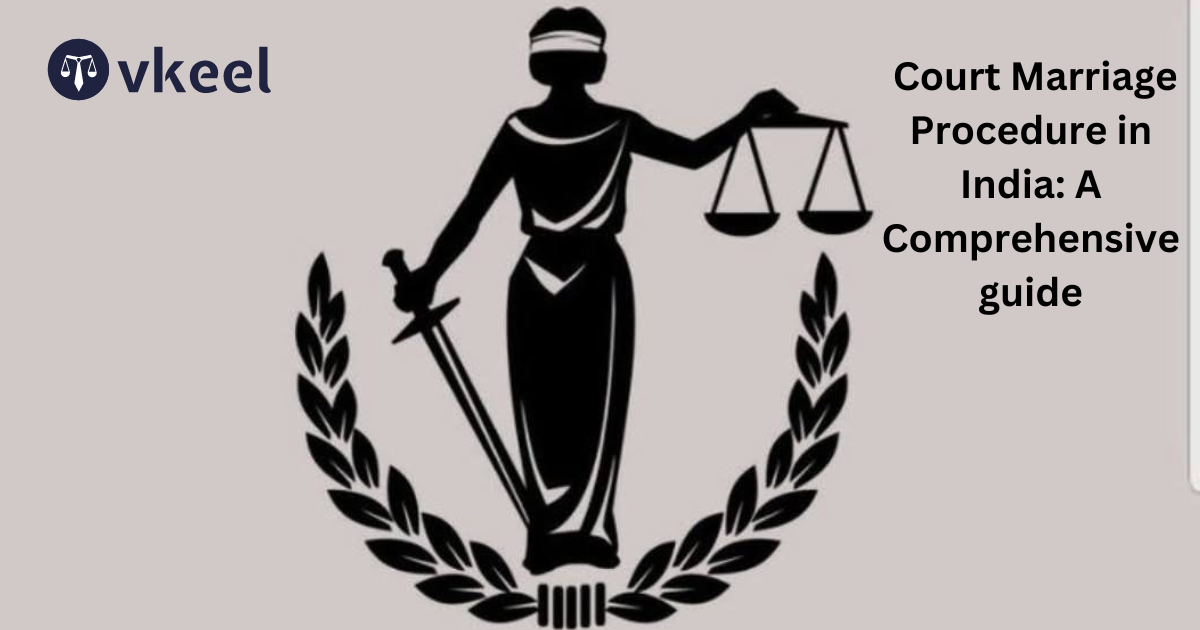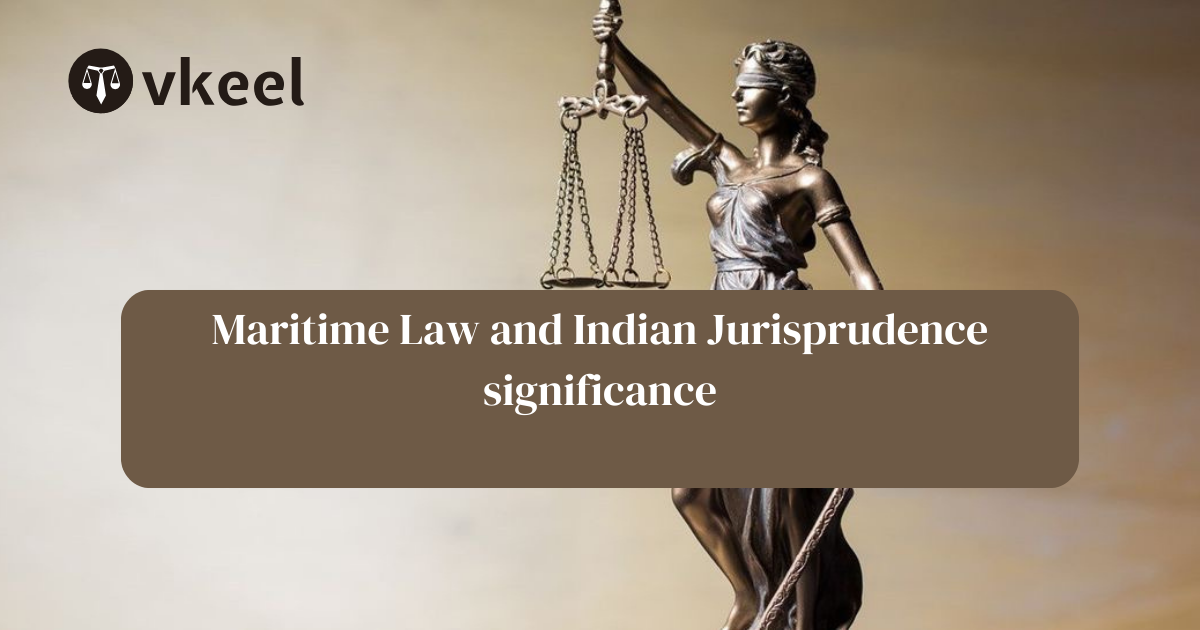Court Marriage Procedure in India: A Comprehensive Guide
By Himanshu Kumar
Table of Contents
Introduction
Court marriages in India offer couples a legally recognized way to solemnize their union outside of traditional ceremonies. This process, governed by specific laws and procedure, provides a streamlined approach to marriage. In Hindu law, marriage is a sacrament , a union , an indissoluble union of flesh with flesh, bone with bone- to be continued even in the next world. According to the Hindu texts, a man cannot be said to have a material existence until he took a wife. According to Shastras a man is the only half of his self. Therefore, he is not fully born until he takes a wife and after marriage alone he becomes complete. That is why Manu declares thus: The person known as the husband is verily known as the wife.
Court marriage, also known as civil marriage , is a legal union of two individuals solemnized before a court of law. It provides a streamlined process for couples who wish to marry without the ritual and circumstances of traditional ceremonies.Court marriage are governed by the special marriage act,1954 and is common across nation ensuring uniformity and legality.
In India , court marriage is performed without any discrimination on the basis of colour , caste , religion or creed. The individuals belonging to two different religion can also get married under special marriage act and are also eligible for court marriage. A court marriage means solemnizing a marriage according to law. Such mariage can also be performed between inter- caste and inter – religion people also. The individuals who are the interested parties can directly apply to Marriage Registrar for the marriage certificate.
Feature of Court Marriage
Following are the features:
Legal Recognition
Court marriages hold equal legal validity as traditional marriages solemnized through religious customs and rituals. They are recognized under the Special Marriage Act, 1954, providing couples with legal protection and lights.
Secular Nature
One of hallmark features of court marriage is its secular nature . It allows couples from diverse religious, cultural and social backgrounds to solemnize theri union without any religious constraints.
Simplicity and Efficiency
The procedure for the court marriage is relatively simple and efficient compared to traditional ceremonies. It involves minimal documentation and formalities, making it accessible to couples hassle free union.
Privacy
Court marriage offers couples the opportunity to celebrate their union in a private and intimate setting. It eliminates the need for elaborate ceremonies and public displays, allowing couples to focus solely on their commitment to each other.
Procedure of Court Marriage
Process of court marriage :
Notice of Intended Marriage (Section 5)
- The couple intending to marry must give notice of their intention to marry to the Marriage Registrar of the district where at least one of them has resided for at least 30 days prior to the date of notice.
- This notice is filed under Section 5 of the Special Marriage Act,1954
Publication of Notice (Section 6)
- The Marriage Registrar then publishes the notice in his office for a period of 30 days.
- Any person can raise objections to the marriage during this period if they believe it violates any legl provision
- This process is governed by Section 6 of the Special Marriage Act,1954.
Investigation of Objections (Section 7)
- The Marriage Registrar investigates any objections raised during the notice period.
- If the objections are found baseless, the marriage proposals.
- Section 7 of the Special Marriage Act, 1954, governs this investigation process.
Verification of Documents (Section 12)
- Both the parties need to submit documents supporting their age, residence,and identity to the Marriage Registrar.
- These documents are verified by the Marriage Registrar
- Section 12 of the Special Marriage Act,1954,mandates the verification of documents.
Declaration and Solemnization (Section 11)
- On the scheduled date of marriage, the couple, along with three witnesses , appears before the Marriage Registrar and signs a declaration stating that they are marrying of their own free will andd without any coercion.
- The Marriage Registrar then solemnizes the marriage by reciting the prescribed words.
- This process is regulated by Section 11 of the Special Marriage Act, 1954.
Issuance of Marriage Certificate (Section 13)
- After the marriage ceremony , the Marriage Registrar issues a marriage certificate to the couple.
- This certificate is legal proof of marriage and is essential for various legal purposes.
- Section 13 of the Special Marriage Act, 1954 deals with issuance of the marriage certificate.
Registration of Marriage (Section 15)
- The final step is to register the marriage.
- The marriage certificate issued by the Marriage Registrar serves as proof of registration.
- Section 15 of the Special Marriage Act, 1954 , governs the registration of marriage.
Eligibility of Court Marriage in India
The eligibility criteria for court marriage in India are outlined under the Special Marriage Act, 1954. This act provides a legal framework for individuals of different religions, nationalists, or those opting for a secular marriage through a court procedure. Below is detailed explanation of the eligibility requirements:
Following are the criteria :
Age
- The minimum age for marriage in India is 18 years for the bride and 21 years for the groom . both the parties must meet the age requirements as per the law.
Mental Capacity
- Both individuals must be of sound mind and capable of understanding the nature and consequence of marriage.
Voluntary Consent
- Consent to marriage must be given willingly and without any coercion, fraud, or undue influence.
Absence of Existing Marriage
- Neither party has should have a spouse living at the time of the marriage.
Prohibited Relationships
- The parties should not be within the degree of prohibited relationship unless the custom or usage governing each of them permits a marriage between two.
Notice of Intended Marriage
- Both the parties must give a written notice to their intention to marry to the Marriage officer of the district where either of them has resided for at least 30 days immediately preceding the date of the notice.
Document required for court marriage
Following are the documents which are required for court marriage:
- The application form should be signed by the both parties.
- Evidence of date of birth of parties.
- Residential proof of both the parties
- Two passport size photo of the bride and groom.
- Death certificate or divorce decree if the parties are previously married.
- Receipt of fees paid with respect to the application form in District court
Advantages of procedure of court marriage in India
Following are the advantages:
Legal Recognition
Court marriages are legally recognized in India, providing the couple with all the rights and privileges accorded to married couples under Indian law.
Simplicity and Efficiency
The procedure for court marriage is relatively simple and efficient compared to traditional marriage ceremonies. It involves minimal rituals and can be completed in a shorter period, usually within a month.
Interfaith and Inter-caste Marriages
Court marriages are often preferred by couples from different religions or castes, as they provide a neutral and secular platform for solemnizing the marriage without the need for religious ceremonies.
Privacy
Court marriages offer privacy to the couple, as they are solemnized in the presence of a Marriage Registrar and a few witnesses, without the need for elaborate ceremonies or public gatherings.
Legal Protection
Court marriages provide legal protection to the couple against any coercion or undue influence from family members or society. The marriage certificate issued by the court serves as legal proof of marriage.
Uniformity
The procedure for court marriage is uniform across India, governed by the Special Marriage Act, 1954. This ensures consistency and eliminates the need to navigate different customs and rituals prevalent in different regions.
Disadvantages of procedure of court marriage in India
Following are the disadvantges:
Social Stigma
Despite legal recognition, court marriages may still face social stigma in certain communities or conservative societies, where traditional marriage ceremonies are more valued and accepted.
Family Opposition
In many cases, families may oppose court marriages, especially in instances of inter-caste or interfaith marriages, leading to familial discord and strained relationships.
Documentation Requirements
Court marriages require extensive documentation, including proof of identity, residence, and age. Fulfilling these requirements can be cumbersome and time-consuming, especially if the couple faces challenges in obtaining the necessary documents.
Lack of Rituals
Some couples may miss the cultural and religious rituals associated with traditional marriage ceremonies when opting for a court marriage, leading to a sense of detachment from their cultural heritage.
Limited Customization
Court marriages offer limited scope for customization and personalization compared to traditional marriage ceremonies, as they follow a standardized procedure prescribed by law.
Language Barrier
The legal proceedings and documentation involved in court marriages are conducted in English or the local language of the court, which may pose a challenge for couples who are not proficient in these languages.
Recent amendments
Amendment to Special Marriage Act
The Special Marriage (Amendment Act), 2020 introduced changes to simplify the court marriage process. Notable amendments include the provision of online registration of marriage and strict guidelines to prevent fraudulent practices.
Recognition of Same-Sex Marriage
Recent judgements by various High Courts in India have recognized the rights of same-sex couples to marry under the Special marriage Act. these rulings mark the progressive steps towards inclusivity and equality.
Conclusion
Court marriage in India, under the Special Marriage Act, provides a legal framework for couples to solemnize their union without religious constraints. Recent case laws and amendments reflect evolving societal norms and the judiciary’s commitment to upholding the rights of individuals. The procedure, though formal, offers a straightforward path to marriage for those seeking a non-traditional approach. As legal perspectives evolve, court marriage continue to serve as an accessible option for couples across India.
Disclaimer:
The information provided in the article is for general informational purposes only, and is not intended to constitute legal advice or to be relied upon as a substitute for legal advice. Furthermore, any information contained in the article is not guaranteed to be current, complete or accurate. If you require legal advice or representation, you should contact an attorney or law firm directly. We are not responsible for any damages resulting from any reliance on the content of this website.










